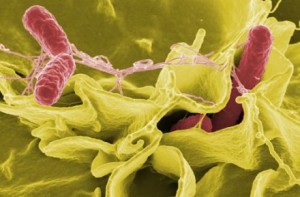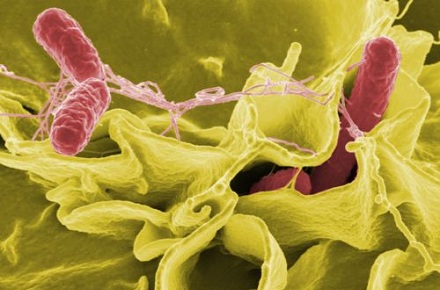A five-month-old baby was rushed to hospital after contracting a rare form of Salmonella from a family pet. The baby’s family initially thought he had a bug, but his symptoms developed into severe diarrhoea so they took him to St George’s Hospital in Tooting.
 |
| [relatedPosts title=”Related Posts”] |
|
|
Tests revealed he was suffering from the effects of Salmonella pomona, a rare type of the bacteria linked to reptiles. Further investigations by Sutton Council Environmental Health Officers revealed the family’s pet lizard and tortoises to be the likely culprits.
The baby has since recovered and Sutton Council is using the incident to urge parents of young children to keep them away from reptiles.
Salmonella is more commonly found in undercooked meat, poultry or eggs, and in adults can cause a mild illness with fever, vomiting, abdominal pain and diarrhoea, but it can be fatal for babies and young children.
In 2009 a baby girl from Sutton was admitted to intensive care with a fever and high heart rate after contracting Salmonella arizona from her family’s pet snake.
Cllr Simon Wales, Executive Member for Communities, Transport and Voluntary Sector at Sutton Council, said: “I’m really pleased to hear this little boy has made a good recovery. This is a very worrying case and thankfully a very rare one. Exotic reptiles are becoming increasingly popular pets but many owners are unaware of the health risks associated with lizards, snakes and tortoises.
“Children under the age of five are particularly at risk, especially because you hold a snake or lizard in the same way that you would hold a baby, so there’s plenty of chance for your clothing and hands to become contaminated.
“There are some basic hygiene precautions that go a long way to help cut the risk of infection. These include thoroughly washing your hands after handling reptiles and before preparing food, not allowing reptiles to roam freely around the house and certainly keeping them out of the kitchen.”





